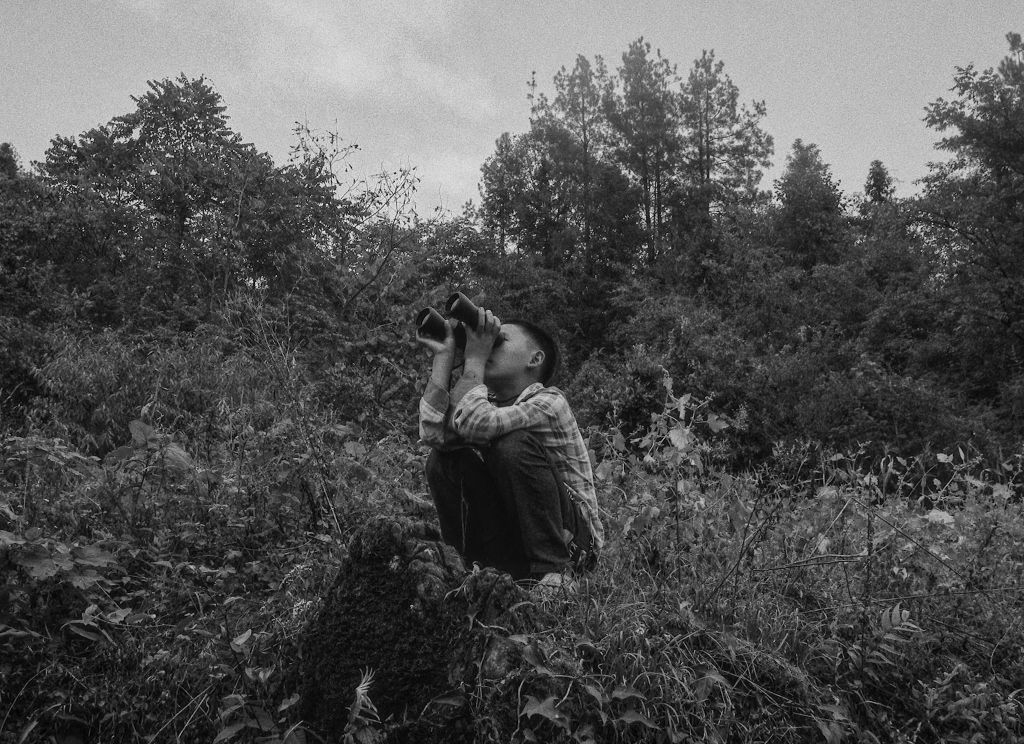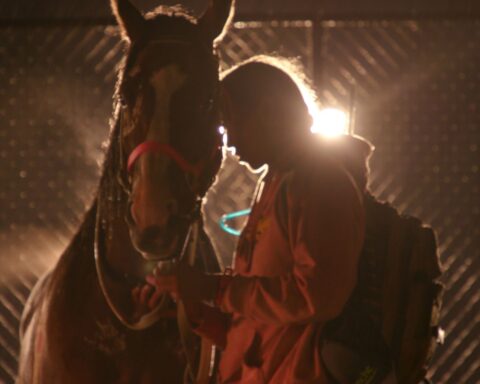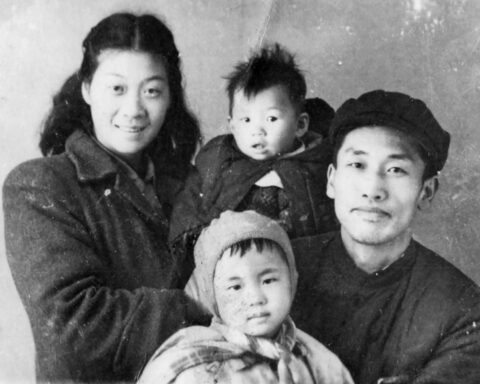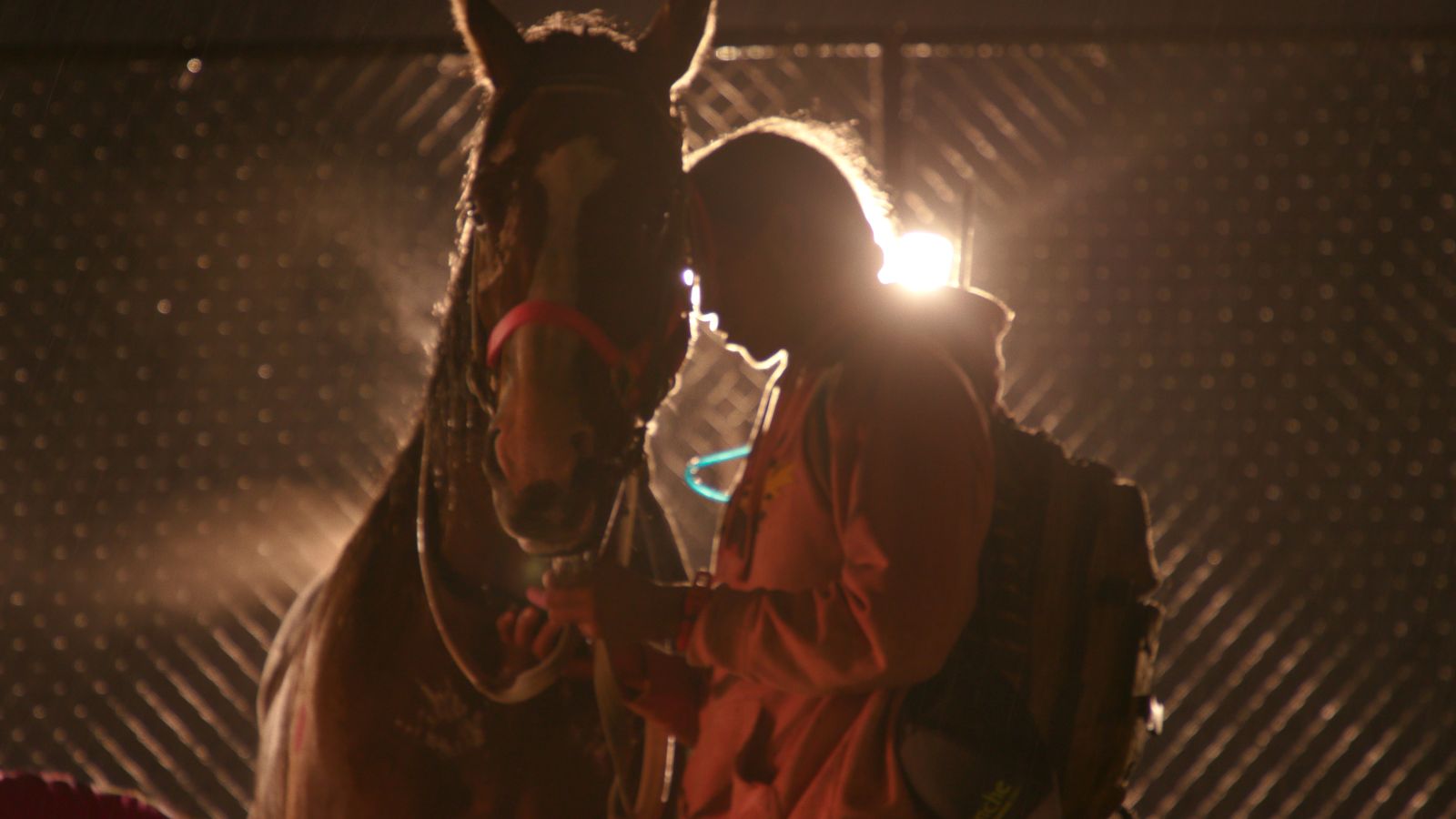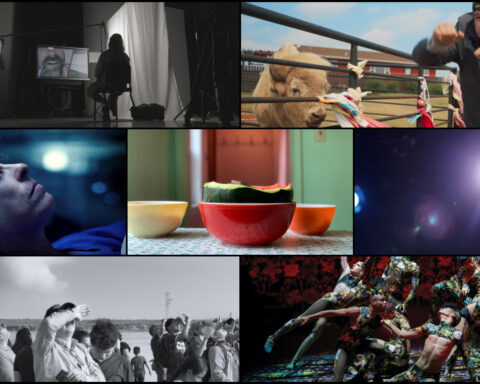Always
(USA/France/China, 84 min.)
Dir. Deming Chen
Programme: World Showcase (North American premiere)
“I regret this life of being human,” says Youbin Gong towards the end of Always. “How great if I were the sun, eternal, burning, burning without end.”
The verse by the young poet and child prodigy brings this documentary to a poignant close. Gong’s poem, “Regret,” appears as voiceover as the camera pans across the landscape of China’s Hunan province. His words offer an elegy for lost childhood, innocence, and opportunity as the black and white cinematography captures a fleeting moment, the kind that inspires his introspective poetry.
This act of seeing and interpreting the world fuels Always. Director Deming Chen’s documentary marks a work years in the making. He observes Gong from childhood through adolescence. His meetings with a young poetry recognize the maturation of a voice, but, ultimately, the loss of one as well. Chen asks Gong what he sees as he sits in a field and considers the landscape of Zhangjiajie, his rural community in Hunan.
As Gong makes observations about trees and fields, Chen asks a recurring follow-up question: “What else?” There’s an exchange here as Chen doesn’t simply capture an artist’s voice for his own film. He nurtures it, as Always poignantly illustrates the adage that it takes a village to raise a child. However, even a village united can’t necessarily help a child succeed when fate stacks life against him.
Always unfolds with quotidian poetry as Chen gleans Gong’s sources of inspiration. The film bides its time with wide shots of the young boy in fields. His inquisitiveness informs all he does.
At school, Gong hones this talent for considering his surroundings. A poetry class further helps him answer that question of what else he sees before him. He’s a star student with a sense of phrasing, imagery, and philosophy wise beyond his years. Word travels through the village.
But it’s a bittersweet success story for Gong as people learn that his mother abandoned him when he was merely three months old. He lives with his father and grandparents, but the life ahead doesn’t promise a poetic filter. Gong’s father has a disability, having lost a hand in an accident, so working on the farm seems an inevitable fate for Gong. However, the local legend inspires some scouts to visit Gong’s home and meet with his father and grandparents. They extol Gong’s artistic voice and seem hopeful that a scholarship can let him nurture his talent. But the meeting, which happens without Gong, has another meaning: it’s the family’s ticket to prosperity, too. Higher education affords Gong upward mobility with better job prospects and higher pay. It’s a lot of pressure, especially since poetry rarely connotes a lucrative practice.
In between the glimpses of the young boy exploring and savouring the world through words, Chen presents the reality behind the poetry. Images of Gong hunting for mice and helping out on the farm show a mix of work and play. He’s young, but aware that the competitive nature of China’s education system makes the scouts’ offer a longshot.
Poems punctuate the film with title cards that demonstrate Gong’s gift. “They say ‘Always’ has never been here,” notes the titular poem. “I argue ‘Never’ is always the wind / This wind, where does it belong in time?” Chen sandwiches the poems with the sources of inspiration, structuring the film thematically with the artist’s own voice.
Gong’s reflection on time also complements Chen’s approach to telling his story. Always bides its time with the rhythm of slow cinema as moments from Gong’s life flows with the film’s lyrical cadence.
The film’s grasp for time proves especially intriguing partway through the story when the Academy ratio black and white images yield to widescreen colour shots. Marking the child’s loss of innocence, Always strips back the poetic lens of Gong’s story. It’s a stark depiction of life in Zhangjiajie.
“The sun pours light on the earth / then darkness came, riding its gilded boat, / to steal away the last twilight,” says another of Gong’s poems. Darkness creeps in as Gong, seen in later years, lacks the spark of youth. When Chen last trains the camera upon the young man, he’s at a table, but not with a pen. Gong simply sits, drained of energy from a hard day. It’s a poetic image, stark and bleak, but Always ensures that Gong’s poetry remains timeless.




